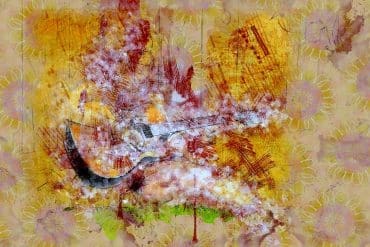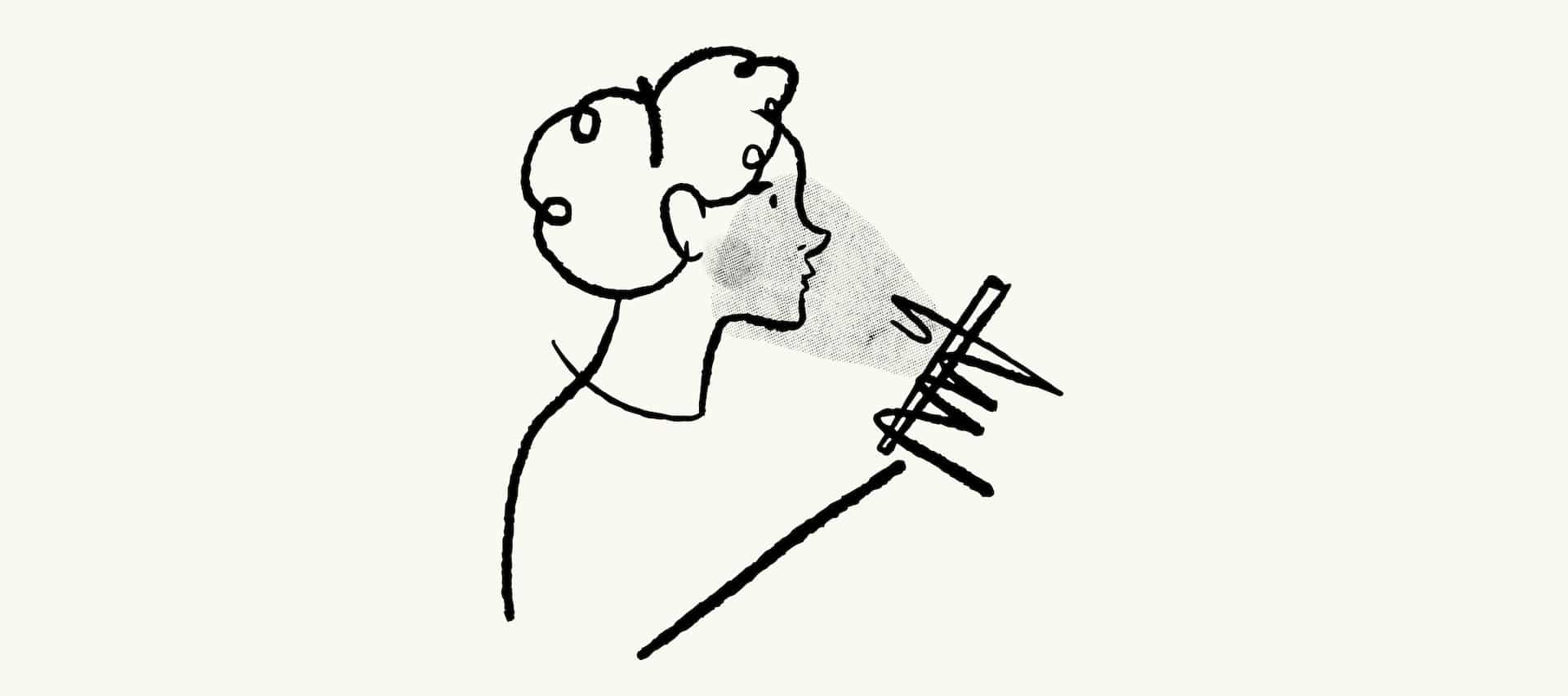Having personally participated in that culture on the internet, as a young adult whose morals were mainly dictated by Twitter, I find that the same “social justice warriors” who I aspired to be like are now an incomprehensible bunch of child-like adults who are incessantly resentful and want to stay mad as it generates more likes and retweets.
Haven’t you ever been in your twenties, questioning whether reality is forged or not? Or if the media is altering your perception? Well, that’s me. As a 20-year-old, it is a crushing experience to know that many of my peers will never see eye to eye with me on morality and that my mindset might be considered “ancient” in today’s terms. It leaves the individual in a constant existential crisis thinking whether I might be mature for my age, or if the brokenness of the older generation has infected my mind.
I am left chained between two worlds, heaven and hell, with the constant need to decide which is which, not realizing I don’t have to.
Religious metaphors of devils being chained between two worlds might be too dramatic for the subject at hand, and it may be the drama my age suggests and induces, but to me, this is a matter of perception, social standing, and not wanting to belong to a political label for the rest of my life. Political correctness might seem like a harmless diplomacy technique, where the ultimate goal is to avoid giving offense. In the past few years, diplomacy has become equivalent to censorship, tedious predictability in social transactions, and the death of the arts.
It appears to me that the root of PC culture is the widespread belief that there is always a victim and an oppressor, and they may be right in some cases, but that has created a culture of impunity for the victimized that they can’t ever be questioned, criticized, and frankly, they must be put on a pedestal. In the beginning, the wanted result was to elicit sympathies with certain causes, however, the desired effect is that of superiority and the feeling that society owes them something.
At my best, I was vexatious. I was a person who liked to believe that they were fulfilled, alas empty in reality. I have also noticed that anyone who dared criticize any social justice movement in my presence must be prejudiced, which in turn made me eliminate myself from ever being a functioning, critical-thinking adult.
Having personally participated in that culture on the internet, as a young adult whose morals were mainly dictated by Twitter, I find that the same “social justice warriors” who I aspired to be like are now an incomprehensible bunch of child-like adults who are incessantly resentful and want to stay mad as it generates more likes and retweets.
It is important to understand the beginnings of these movements, to fully dissect why people are so invested, like myself (formerly). Some of the leaders of PC culture, in my opinion, are individuals who have not found the relevance or prominence in real life they think they should. A big part of it stems from wanting to adhere to standards that were set by Hollywood and celebrities that they should live an exceptional life, full of twists and turns. That fantasy even goes way back to the “American Dream” genesis. Following the rules of humanity and nature, they make noise to be seen or heard. I have since reached the conclusion that this isn’t a sane state of mind to constantly be in; to not allow a single imperfection, mistake, or dare I say, humanity. To believe that the concept of redemption is obscure, and facts just aren’t of importance against emotions.
So, what made me want to change? Looking back at myself in my early teenage years, I know I must have appeared to be an empty vessel repeating a mantra not created by myself, like a puppet on a string. It was apparent to my mother, who was particularly not impressed by my claims of “hating men” and wanting to “dismantle the patriarchy”, because I didn’t even understand what it truly meant, regardless of whether she shared any of the sentiments or not. At my best, I was vexatious. I was a person who liked to believe that they were fulfilled, alas empty in reality. I have also noticed that anyone who dared criticize any social justice movement in my presence must be prejudiced, which in turn made me eliminate myself from ever being a functioning, critical-thinking, adult.
I felt like I was wronged by my parents, for reasons unknown to me then and now, while they were doing the best of their abilities to provide for our family when times were hard. I essentially let the internet make me believe that my parents were horrible, just because other people’s parents were. When I detected that this system of thought wasn’t working for me, that it made me constantly sad, negative, and almost like a wounded animal on the offensive, I was determined to make some changes.
I essentially let the internet make me believe that my parents were horrible, just because other people’s parents were. When I detected that this system of thought wasn’t working for me, that it made me constantly sad, negative, and almost like a wounded animal on the offensive, I was determined to make some changes.
No change is easy though. Having your whole moral system shattered can be a difficult experience to go through, especially in the early years. I became a wannabe anarchist, causing emotional chaos for everyone I met because if my core values weren’t as right as I wanted them to be then no one’s values matter because they are wrong as well. Which then lead me to believe I was a Nietzsche fanatic, a nihilist whose only purpose is to live whatever life this might turn out to be, then die. It took me a couple of tries to not be an extremist of thought or a part of a group, and just settle for myself, as I am.
As I am writing this, it has come to mind that judgment isn’t a new concept. People have always formed opinions, judgments, and prejudice against their fellow man, but social media has given these judgments an immaterial megaphone that has clouded our days with negativity. Some causes I applaud and support wholeheartedly, like supporting and giving voices to the formerly-colonized citizens of my region, Western Asia, to express their anger at their corrupt and oppressive government entities, and environmental activism concerned with holding companies that contribute to the destruction of our planet accountable. One issue I support, alas with suspicious gazes – as most media outlets are using said movement for personal gain – is the whirlwind that is Feminism. While the movement has supported victims of sexual assault and harassment, who were strengthened by exposing the behavior of some Hollywood elite, it has turned into a culture of exploitation and diminishment of the male counterparts of society.
The first time I was enraged by the silliness of PC culture, and completely removed myself from it, was on Twitter when someone added a trigger warning to a tweet about… Food. That exact scenario has made me delete the application off my phone entirely. That was yesterday, by the time I’m writing this.
For the first time since my adolescence, I am recognizing that I don’t have to believe what everyone believes, nor do I have to base my morals on faceless strangers who don’t know who I am, or what my experiences are. We are on this Earth to learn from our experiences and mistakes, and I will not allow my thoughts to be dictated by anyone anymore. My journey in the world of social media has taught me that It’s okay to trust my own moral compass while learning and being educated constantly. It appears that being as removed as I believe myself to be from others makes the road less crowded, but full of like-minded companions.
AUTHOR’S MEMO
This literary piece reviews the current issues and dilemma facing the youth, myself included, on the international stage, especially in the cyber universe. I used the method of autoethnography to describe my self-reflection and the analysis and integration of these perceptions to gain insight on a social or cultural issue (Ellis, Adams, and Bochner, 2011). Elements of a heartful autoethnographic method were used to include my vulnerabilities, fears, doubts, and the inner monologue in hopes to guide other individuals going through similar experiences to reach their conclusions (Ellis, 1999). This piece follows an inner-dialogue written to document my sense of self, and consciousness in order to hold myself accountable to my past mistakes, and regrets (Maguire, 2006).
Ellis, C., Adams, T. E., & Bochner, A. P. (2011). Autoethnography: an overview. Historical Social Rsearch/Historische Sozialforschung, 273-290.
Ellis, C. (1999). Heartful autoethnography. Qualitative Health Research, 9(5), 669-683.
Maguire, M. H. (2006, March). Autoethnography: Answerability/responsibility in authoring self and others in the social sciences/humanities. In Forum: Qualitative Social Research, 7(2).










